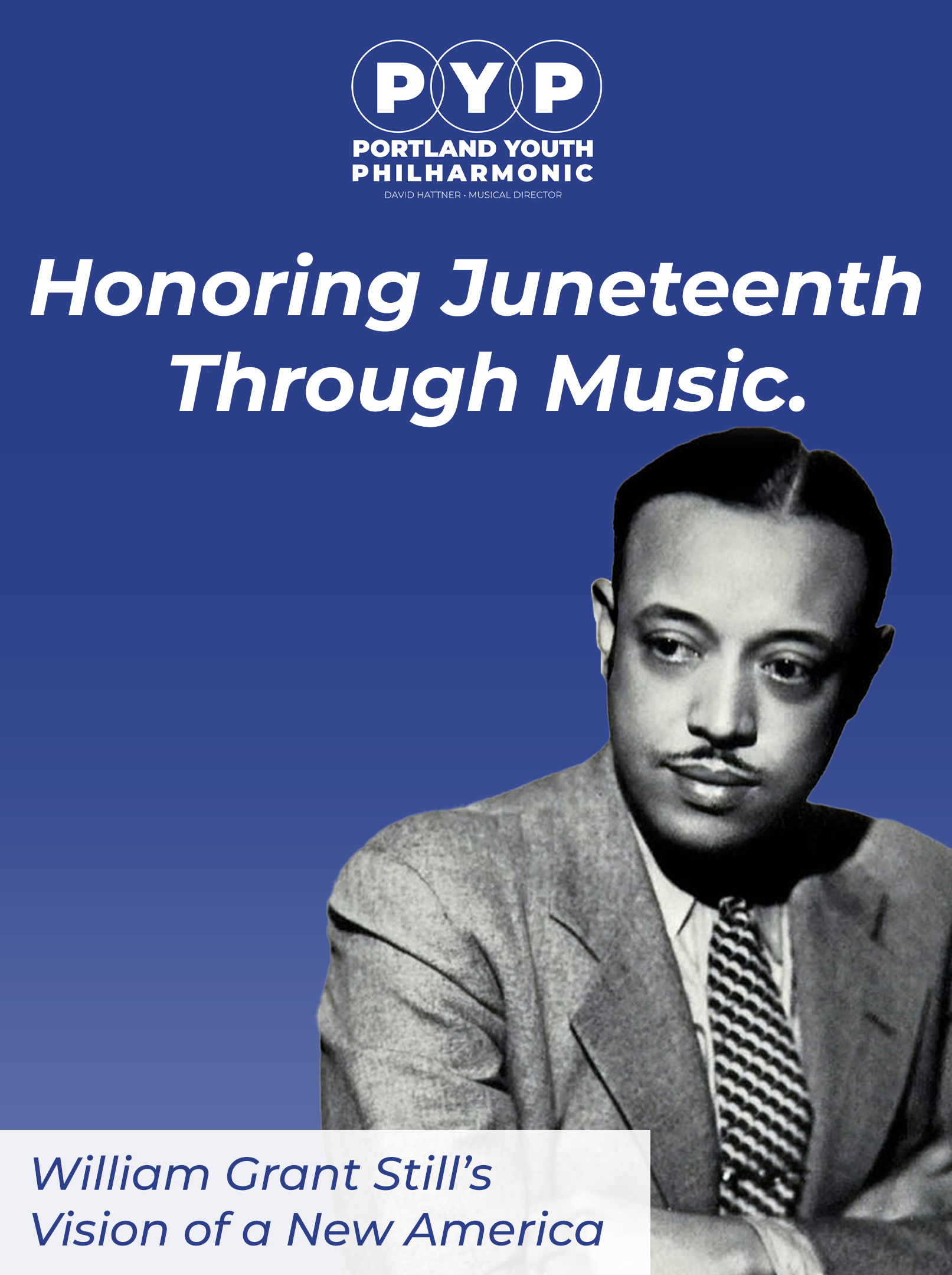Honoring Juneteenth Through Music: William Grant Still’s Vision of a New America
Posted on June 18, 2025

June 19 marks Juneteenth, the oldest nationally celebrated commemoration of the ending of slavery in the United States. Though the Emancipation Proclamation was issued in 1863, freedom did not reach enslaved African Americans in Texas until June 19, 1865—over two years later. Juneteenth has since become a day of remembrance, reflection, and celebration of Black culture, resilience, and achievement.
At Portland Youth Philharmonic, we believe in using music to tell stories that matter. In honor of Juneteenth, we’re sharing a recent performance of Symphony No. 2 in G Minor, “Song of a New Race” by William Grant Still, a towering yet often overlooked figure in American music.
Often called the “Dean of African American Composers,” Still was the first Black composer to have a symphony performed by a major orchestra, the first to conduct a major orchestra in the U.S., and the first to have an opera produced by a major company. Yet despite his trailblazing achievements, Still’s work has too often been left out of the mainstream classical canon.
“Song of a New Race” is a sweeping, lyrical, and emotionally resonant piece—Still’s musical portrait of a hopeful future shaped by a new, multiracial American identity. Composed in 1937, the symphony draws from his earlier work, Afro-American Symphony, but goes further: not just asserting the presence and dignity of Black Americans, but envisioning their role in reshaping the very soul of the nation.
Still wrote, “The American Negro is progressing. He is coming to think and feel in new ways… and is becoming assimilated into the American life.” His second symphony captures this evolution—its melodies sing of sorrow and struggle, but also of joy, pride, and transcendence.
Performed live by Portland Youth Philharmonic at the Arlene Schnitzer Concert Hall under the direction of Music Director David Hattner, this rendition brings Still’s vision to life with clarity, energy, and heart. In the hands of our young musicians, the work takes on new meaning—bridging generations and reaffirming our belief that the voices of the past can help guide the future.
As we honor Juneteenth, we are reminded that the story of America is incomplete without the contributions of Black artists, musicians, thinkers, and leaders. Music by composers like William Grant Still gives us the opportunity not only to reflect on history but to imagine what a more inclusive and compassionate future might sound like.
Watch the full performance:

0 Comments :